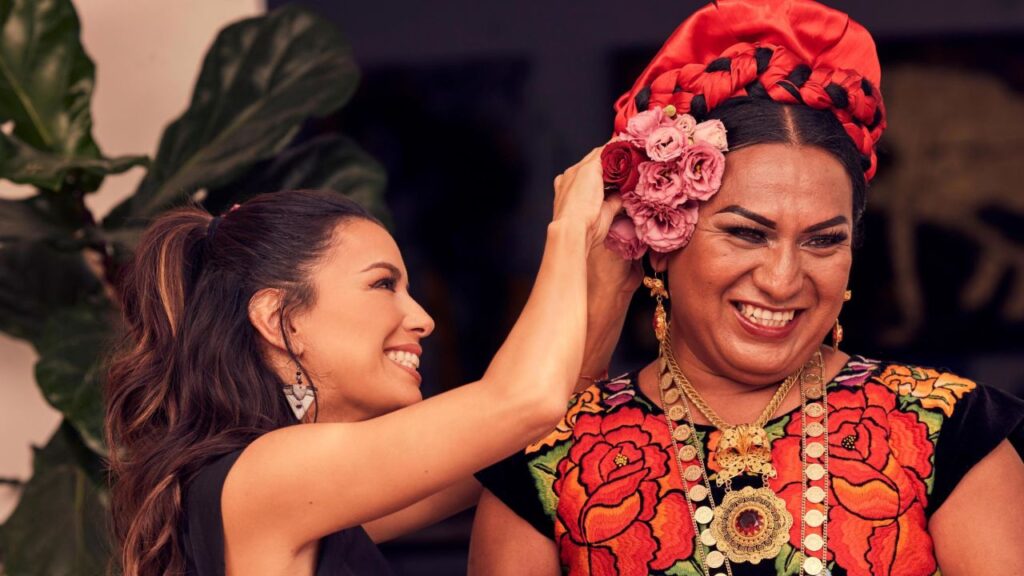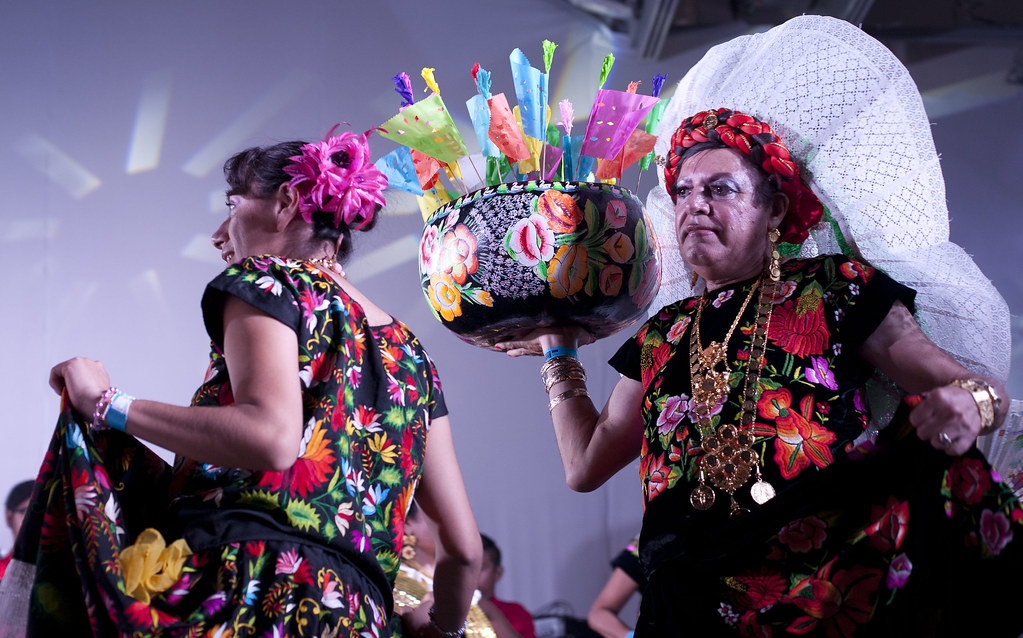Introduction
In a world that often forces people into boxes, the Muxes of Oaxaca walk freely in the spaces in between; boldly, beautifully, and unapologetically themselves.
Rooted in the Zapotec culture of the Isthmus of Tehuantepec, Muxes are considered a third gender; not man, not woman, but something entirely their own. And their identity isn’t a modern invention; it’s a living example of how Indigenous communities have long embraced gender diversity.
Who Are the Muxes?
Muxes are people assigned male at birth who take on traditionally feminine roles, or present themselves in feminine ways. But they are not simply “men dressed as women.” That framing misses the point.
In Zapotec culture, Muxes are recognized, respected, and even celebrated; especially in towns like Juchitán de Zaragoza, where they play vital roles as artisans, business owners, caretakers, and cultural keepers.
Their existence challenges colonial, binary thinking; and reminds us that queerness has always existed in Latin American identity, long before Western gender categories.

Muxe Fashion as Expression and Resistance
The clothing of Muxes is a vibrant declaration of who they are. Many wear traditional Tehuana dresses, adorned with embroidery, flowers, and gold jewelry. The way they present themselves is often both hyper-feminine and deeply rooted in Zapotec aesthetics—a bold mix of tradition and self-expression.
Fashion, for Muxes, is not just personal; it’s political. It’s a way to claim visibility in a society that still wrestles with gender norms, and it’s a way to honor both their Zapotec identity and their queerness at the same time.
Fiesta de las Auténticas Intrépidas Buscadoras del Peligro
Each November, Juchitán hosts a festival that sounds like it came from a magical realist novel:
“The Festival of the Authentic Intrepid Seekers of Danger.” It’s a celebration of Muxe identity; featuring music, parades, pageants, and pride.
It’s not just about fun (though there’s plenty of that). It’s about visibility, power, and the right to take up space.

What We Can Learn
In a fashion world that still favors rigid beauty standards and binary categories, Muxes show us another way:
- That style can be sacred, not just trendy
- That identity is layered and cultural, not just personal
- And that queerness isn’t a trend; it’s tradition
For Nuestro Estilo, these stories are essential. They remind us that honoring our roots means honoring all the ways we exist; especially the ones that challenge expectations.
Let’s Talk About It
Have you ever heard of the Muxes before? What does gender expression look like in your culture? Let’s open up the conversation.
Read more, share, and show love to our queer Latinx familia.




Very interesting topic!!